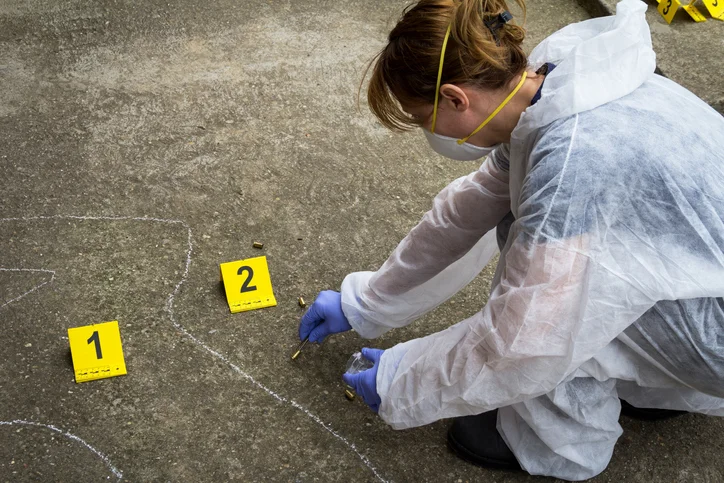What Is a Crime Scene Investigator and How to Become One

Table of Contents
What Is a Crime Scene Investigator?
Crime scene investigators (CSI) work closely with law enforcement officials to collect and examine evidence at crime scenes. Evidence includes DNA samples (hair, bodily fluids, blood stain patterns), impressions (footprints, fingerprints, tire marks, bite marks), trace evidence (clothing fibers, accelerant, paint, glass), and weapons (guns, bullet casings, gun. powder patterns). Crime scene investigators ensure the evidence is handled and processed according to strict standards to not compromise it in any way. Some crime scene investigators specialize in digital investigations and collect evidence analyzing data in cases of fraud or scams.
How to Become a Crime Scene Investigator
It takes an avid interest in science to become a crime scene investigator. Crime scene investigators must have a bachelor’s degree in criminal justice, biology, or a related field. A master’s degree may also be required for some jurisdictions. Not all crime scene investigator jobs will specify that a training academy education is needed, but many employers prefer it, so you may want to join the police academy. Once you have been sworn in as a police officer, you’ll have on-the-job training in your new role.
Where Do Crime Scene Investigators Work?
Crime scene investigators work with law enforcement agencies at the location of the crime. They are called in to collect, document, and process the evidence where it is found to ensure it is handled without compromising it, and often assist in reconstructing crime scenes based on their records. Their work is used in trials and courtrooms, so crime scene investigators may be asked to testify and can be called on to explain the evidence.
What Do Crime Scene Investigators Wear?
Crime scene investigators may have uniforms issued by their department, but they also utilize protective gear to avoid contamination and other hazards at the crime scenes. Protective equipment may include gloves, goggles/face masks, booties, and jumpsuits; a hair covering or hairnet is needed to prevent hair from getting mixed up in crime scene evidence. In areas with a chemical contamination risk, a CSI may wear an encapsulated suit with a breathing apparatus.
Do Crime Scene Investigators Travel?
Crime scene investigators travel to the scene of the crime to collect evidence, take photographs, and record the places where evidence was found. Since crime does not run on a 9-to-5 schedule, crime scene investigators are often called in at night and on weekends. In some cases, they may be called to the farthest areas of their law enforcement jurisdiction. Depending on the law enforcement agency they work with, this could mean travel all over their state.
Crime Scene Investigator Job Description Sample
With this Crime Scene Investigator job description sample, you can get a good idea of what employers are looking for when hiring for this position. Remember, every employer is different and each will have unique qualifications when they hire for a Crime Scene Investigator role.
Job Summary
Our department is currently seeking a Crime Scene Investigator. In this role, you will investigate active crime scenes for evidence. You properly document and transport any physical evidence, including latent fingerprints that we may be able to run through our criminal database. You also take photos and draw diagrams of the original crime scene, which can then be referenced at a later time in the investigation. To qualify for this position, you should have a degree in criminal justice or prior law enforcement experience.
Duties and Responsibilities
- Investigate active crime scenes
- Take photos and process latent fingerprints, running any viable prints through our databases to identify potential suspects, victims, or witnesses
- Properly collect, document, and transport physical evidence
- Draw diagrams or sketches of the crime scene
- Present briefs and write reports based on your observations
- Appear in court when necessary
Requirements and Qualifications
- High school diploma or GED certificate
- Associate or bachelor's degree in criminology, criminal justice, or a related field
- Prior experience in crime scene investigation or law enforcement (1+ years)
- Evidence handling and fingerprint development experience
- Computer proficiency
- Valid driver's license